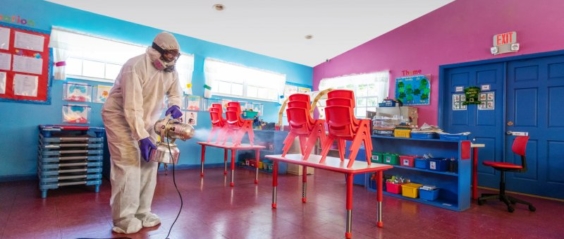Need to know: COVID-19
- As of 11 a.m. on Friday, September 18, there were 191,019 confirmed cases. See cases by county here.
- The share of positive tests as a percentage of total tests is now at 5.1%.
- On Thursday, Gov. Cooper announced elementary schools can bring K-5 students back in person under plan A. Grades 6 and up must continue under plan B or C. More on that here.
A new slant
If you’ve been following EdNC’s reporting around attainment, you’ve likely heard the term “the skills gap.” I’ve probably written it dozens of times in my research and reporting on educational attainment.
A new paper from Brookings Institute argues we should shift the framing from skills gap to opportunity gap. The term skills gap, the authors say, frames labor market issues through a deficit lens — low-income and displaced workers lack the skills that businesses need — and ignores the effects of race, class, gender, and zip code in determining who has access to opportunities.
The authors recommend a “more holistic and nuanced approach” for connecting people to economic opportunity. They recommend:
- Information about quality jobs and career navigation assistance
- Affordable education and on-the-job learning
- Supportive services such as child care and transportation
- Professional networks and peer support
- A foot in the door to a new field, including first jobs, internships, and apprenticeships
- Equitable hiring, mentoring, and management practices
Contextual healing
Five, six months (how many months has it been?) into the pandemic, it can be easy to become numb to the bad headlines week after week. The Hamilton Project just published a report, “Ten Facts about COVID-19 and the U.S. Economy,” that provides a good snapshot into our economy right now. And while it’s mostly bad news, there are some interesting highlights and nice charts. Here are a few examples:
New business formations declined in the spring but have picked back up and are on track to outpace recent years.
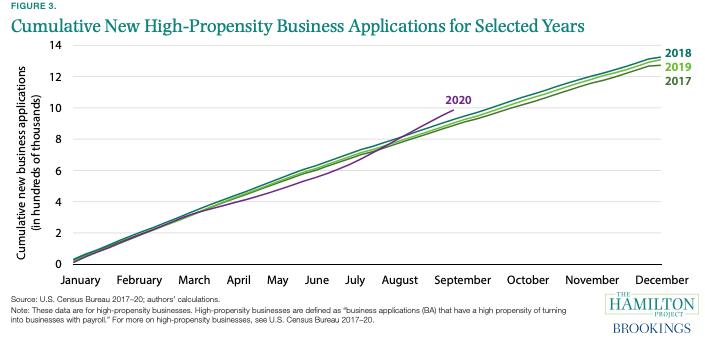
In North Carolina, 21-28% of renters surveyed in late July said they did not pay or deferred paying rent.
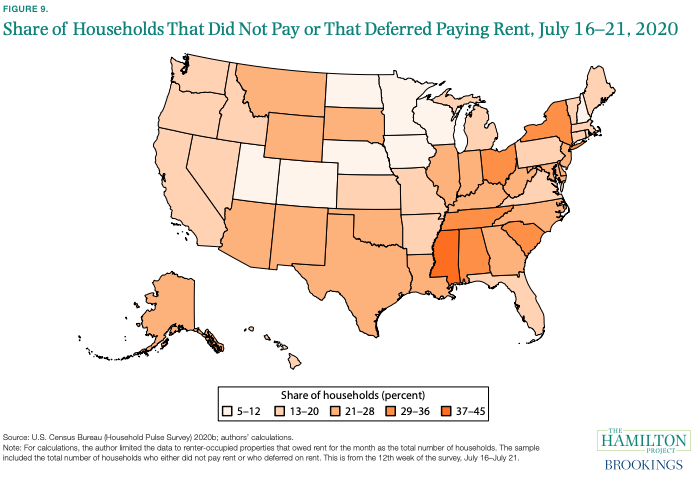
The personal saving rate reached its highest recorded level in April as people dramatically reduced spending. It has declined since then but is still higher than anytime in the past 20 years.
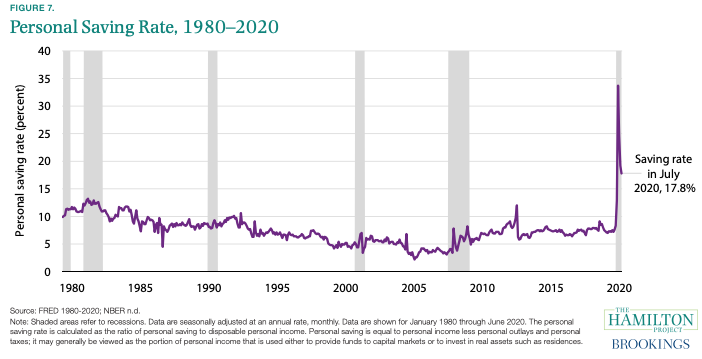
For your consideration
A report from the group More in Common looks at how COVID-19 has impacted everything from finances to feelings of belonging to trust in the media across seven countries: United States, United Kingdom, France, Germany, Poland, the Netherlands, and Italy. The group surveyed roughly 2,000 people in each country in June and July. This slideshow presents findings from all seven countries, and this slideshow presents the U.S. findings.
The group sorts Americans into seven population clusters it calls “tribes” based on political preferences and core beliefs. They break the responses into these seven groups, showing how political ideologies impact behaviors and beliefs around COVID-19. In the slide below, you can see how opinions on the media differ between groups.
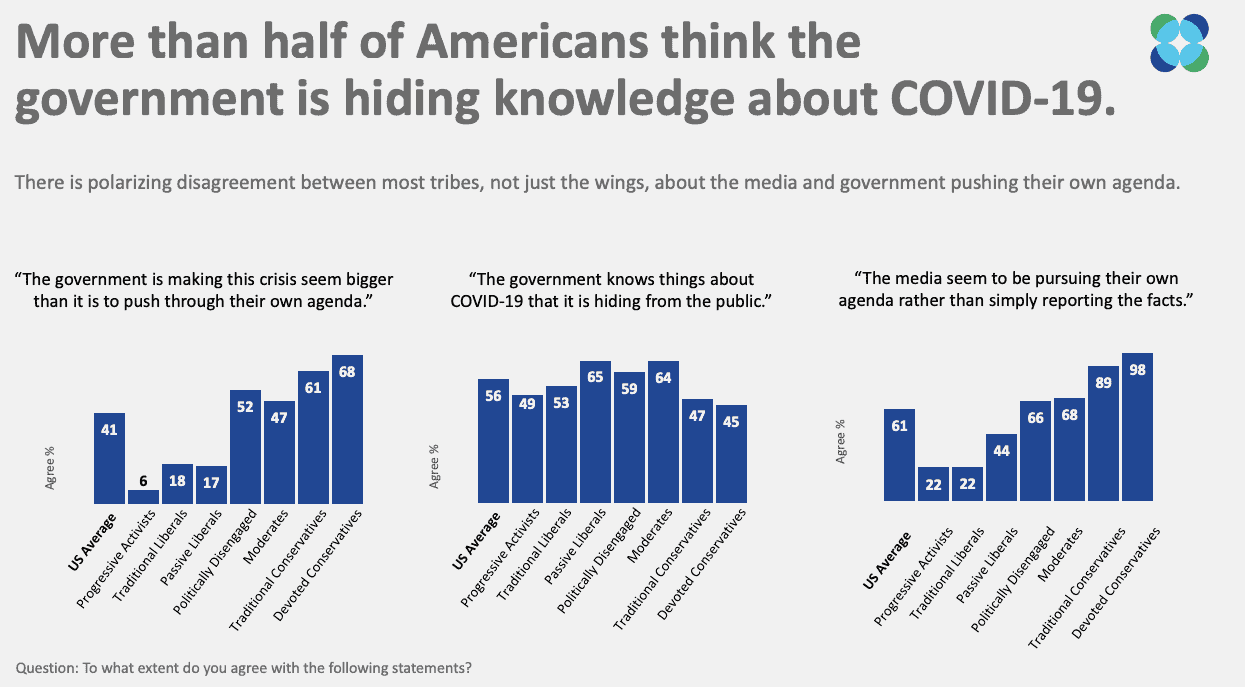
In the comparison of responses from the seven countries, only people from Germany and the Netherlands feel their government handled the crisis well. View the rest of the report to see more.
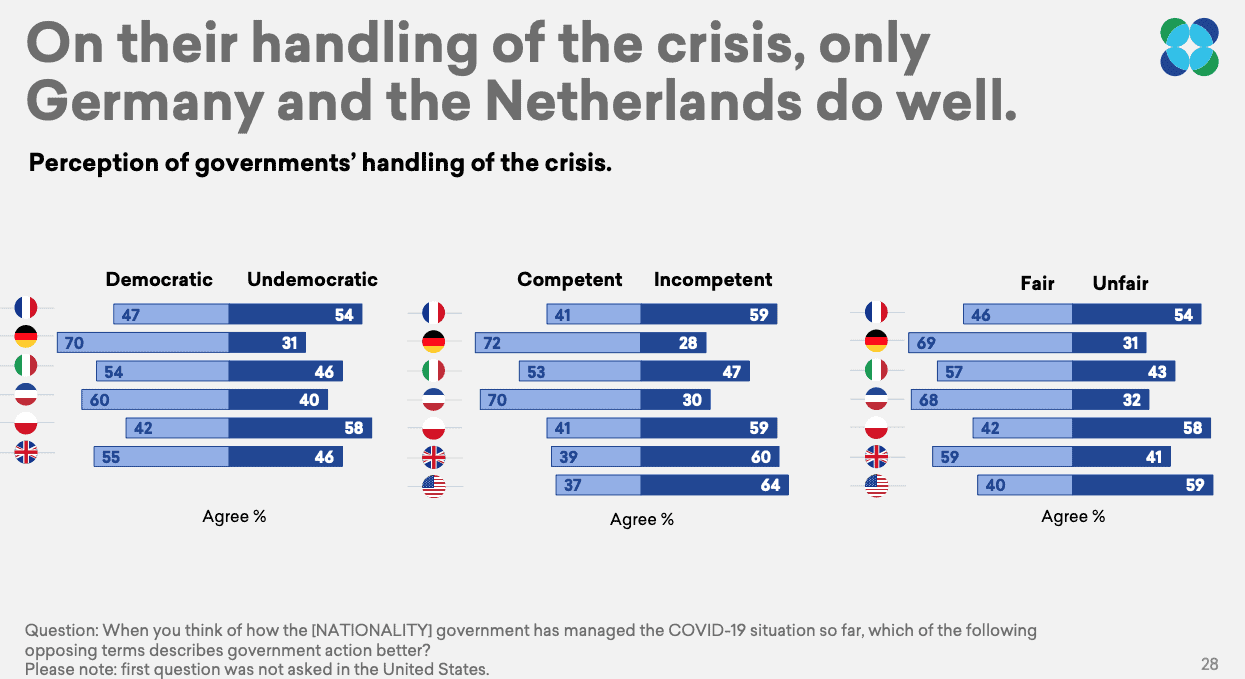
What we're reading
COVID-19 Has Nearly Destroyed the Childcare Industry—and It Might Be Too Late to Save It
Prior to the pandemic, the childcare industry was barely hanging on. Now, the increased costs and decline in demand may permanently shut down many providers. ... Read the rest-
Remote monitoring is rapidly growing — and a new class of patient-consumer is driving the shift
-
Learning pods for all, the Hoosier way
-
A New Arctic Is Emerging, Thanks to Climate Change
-
COVID-19 Is Crushing Newspapers, Worsening Hunger for Accurate Information
-
The pandemic is spotlighting longstanding issues with America’s school buildings
-
Nudging and Shoving Students Toward Success

